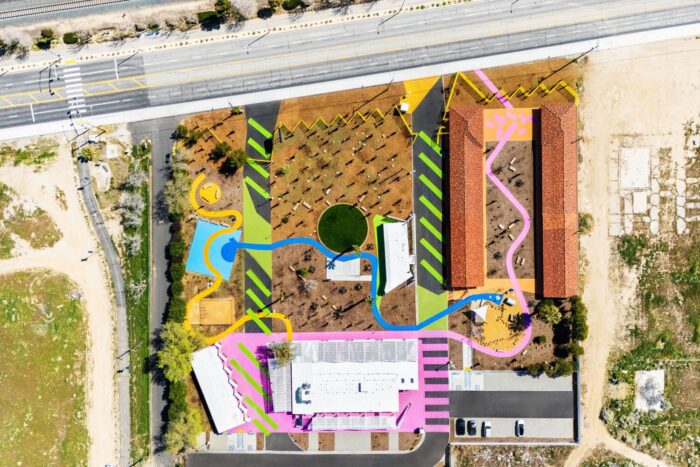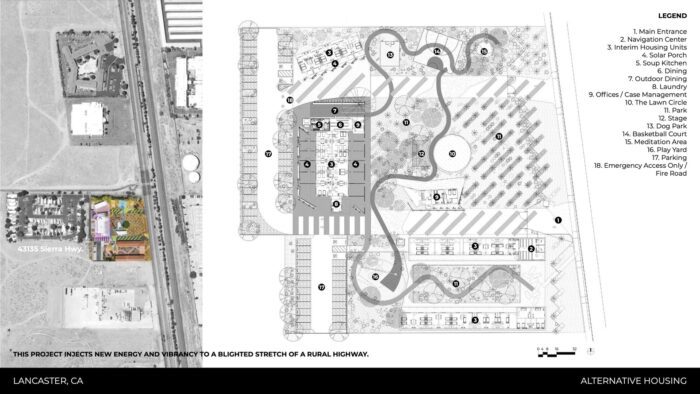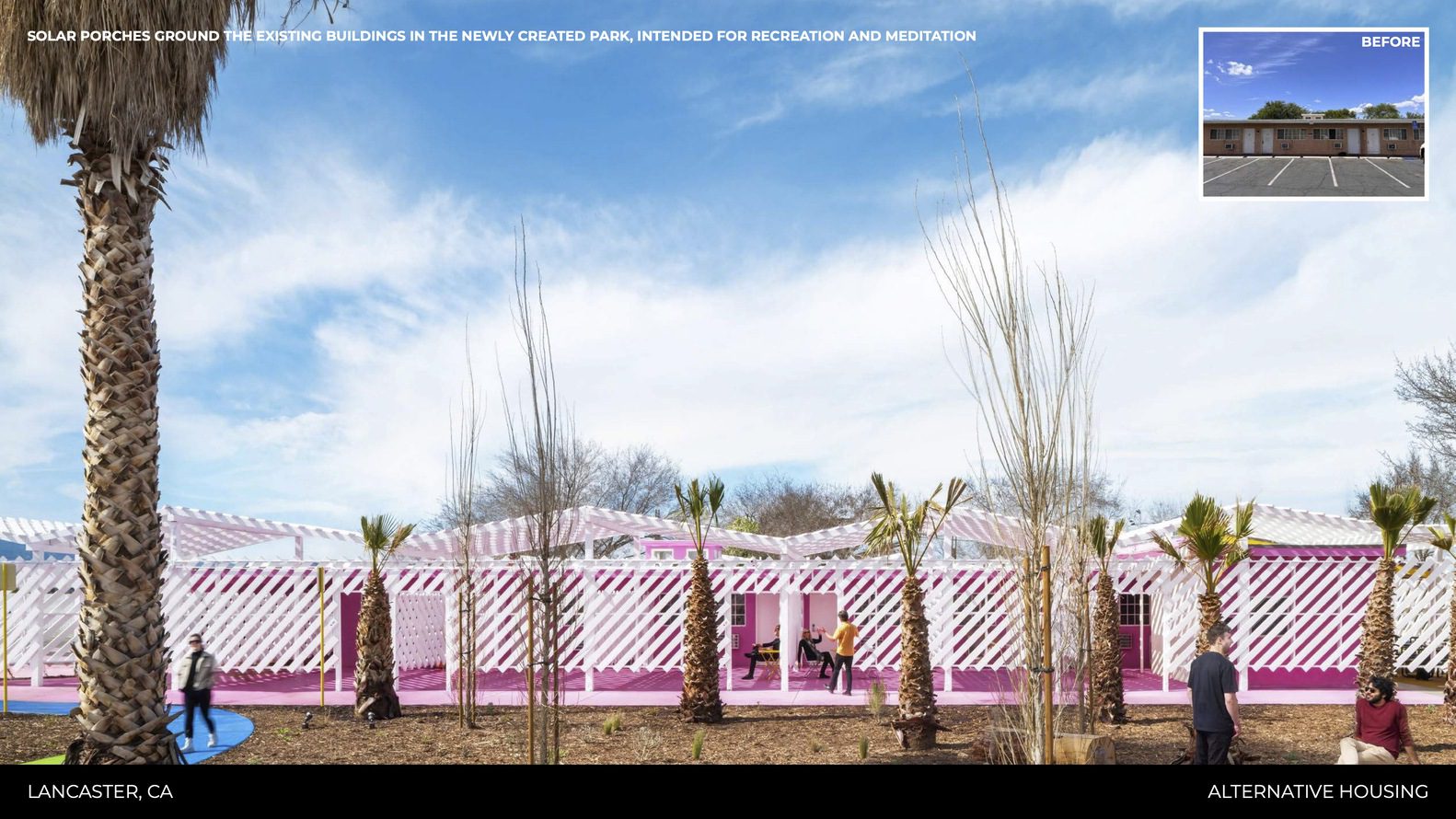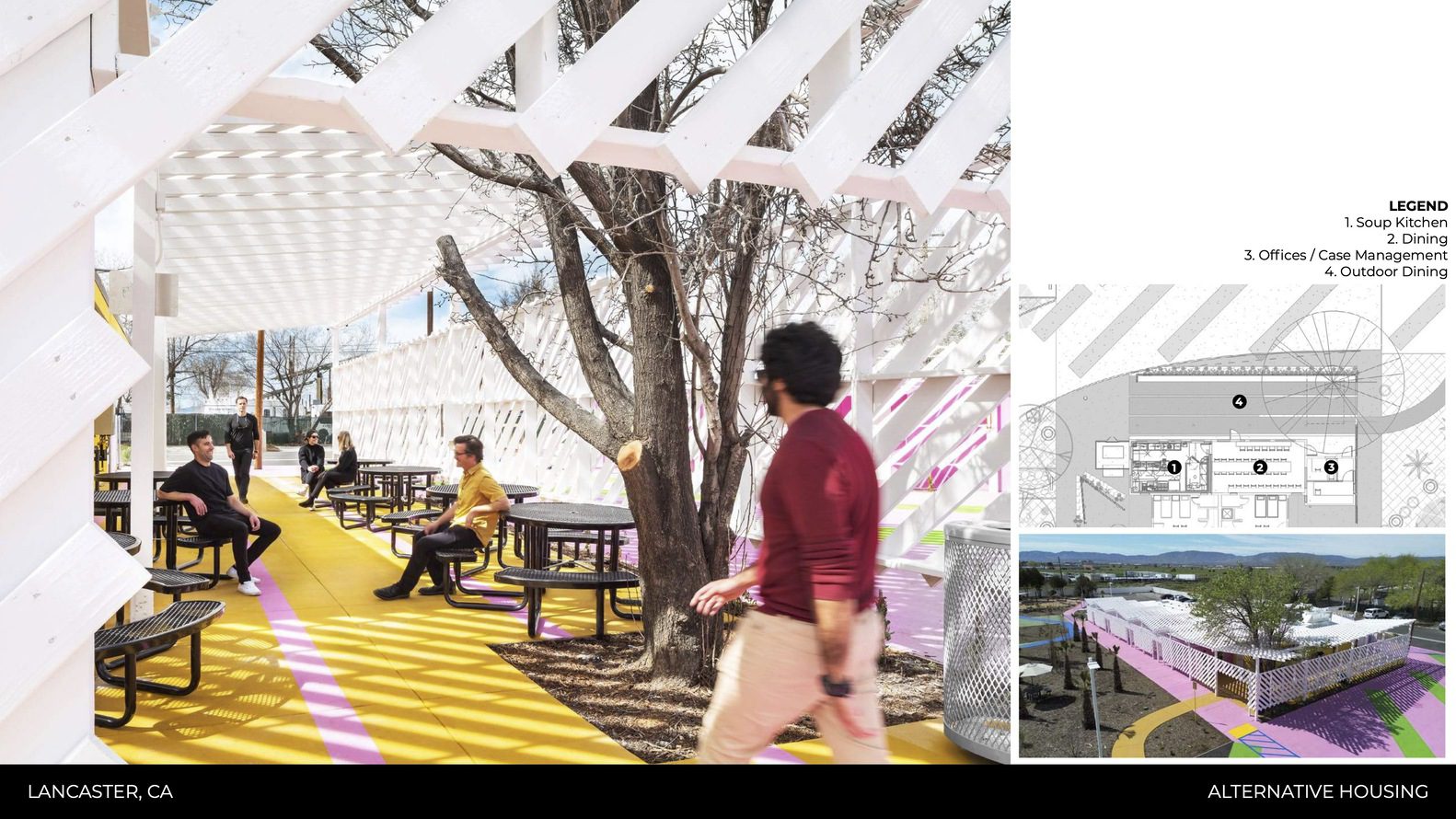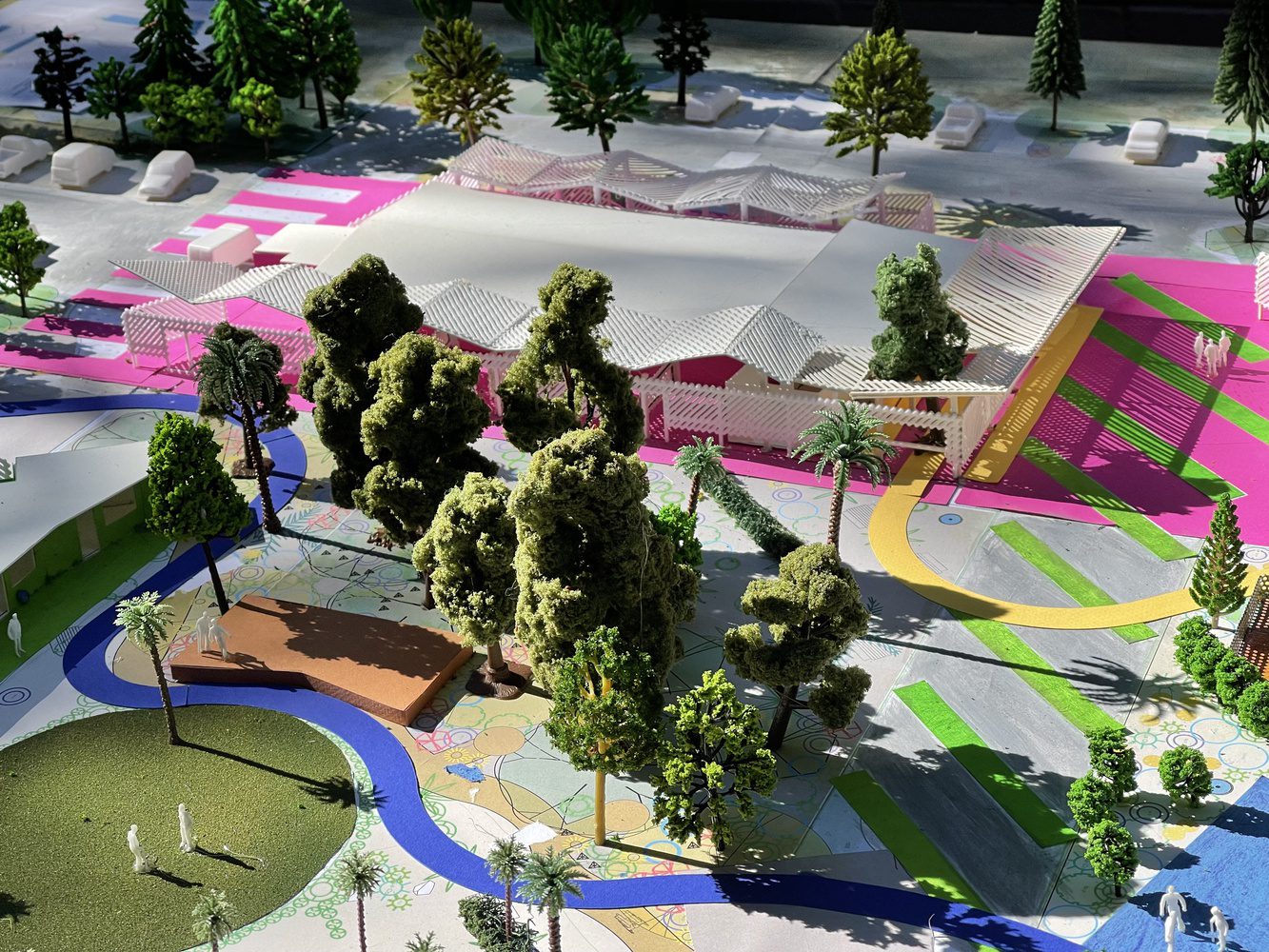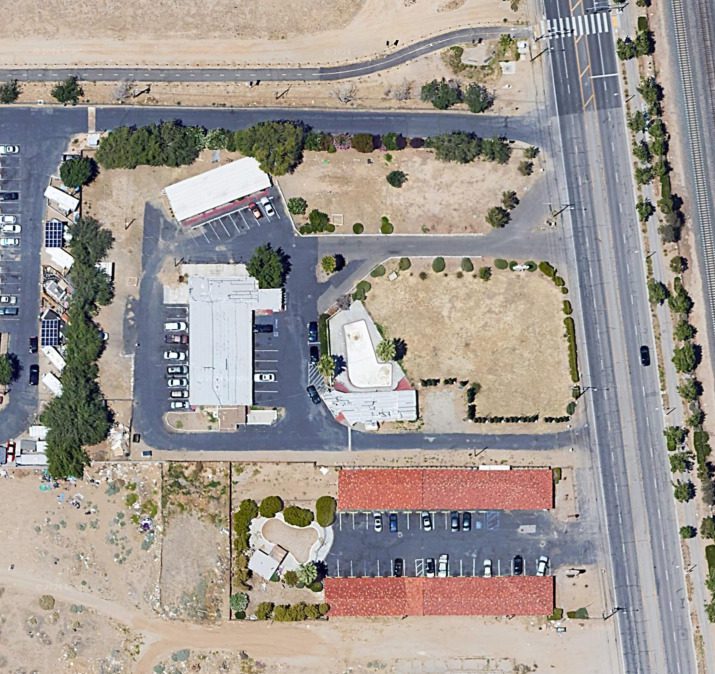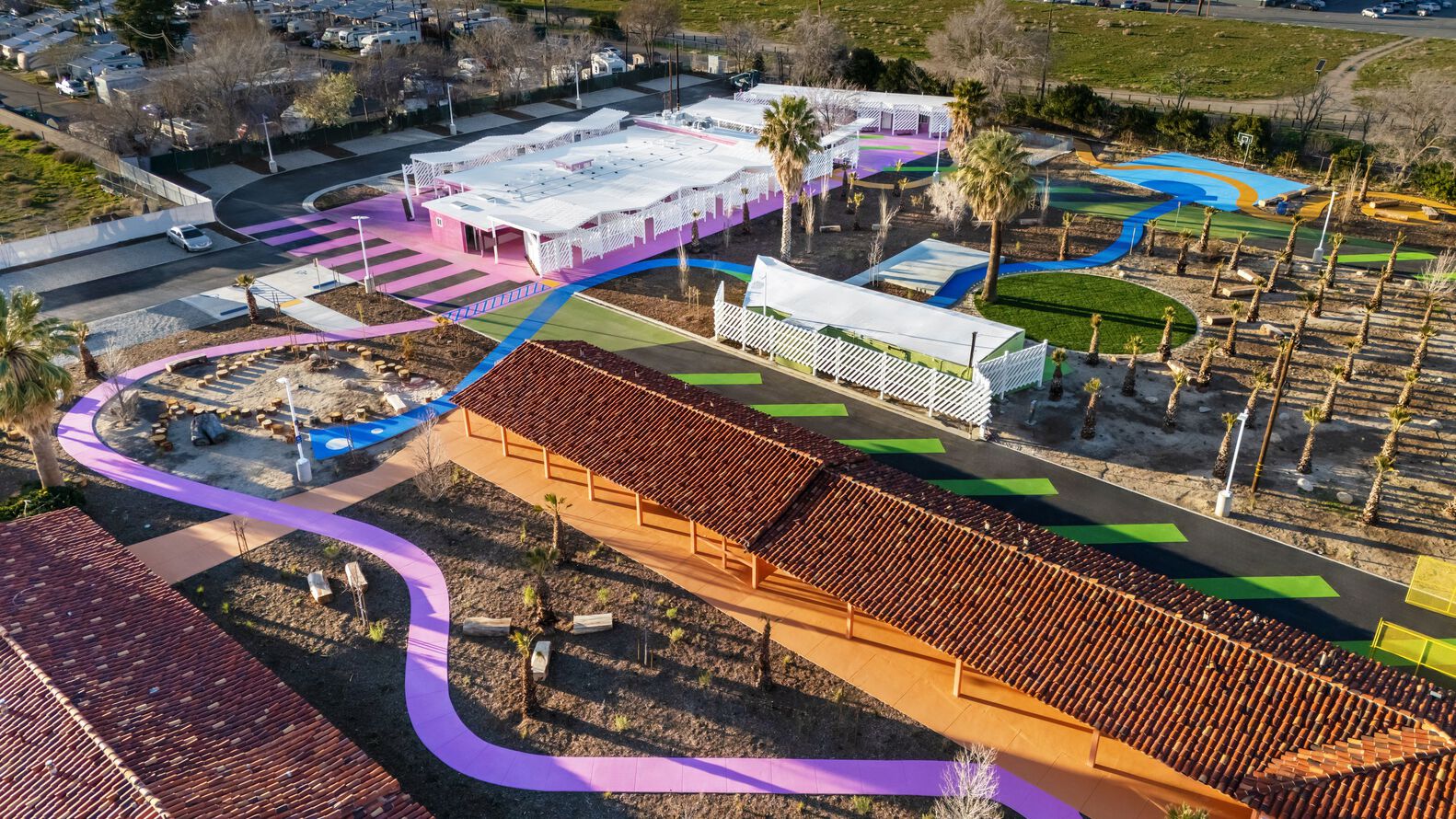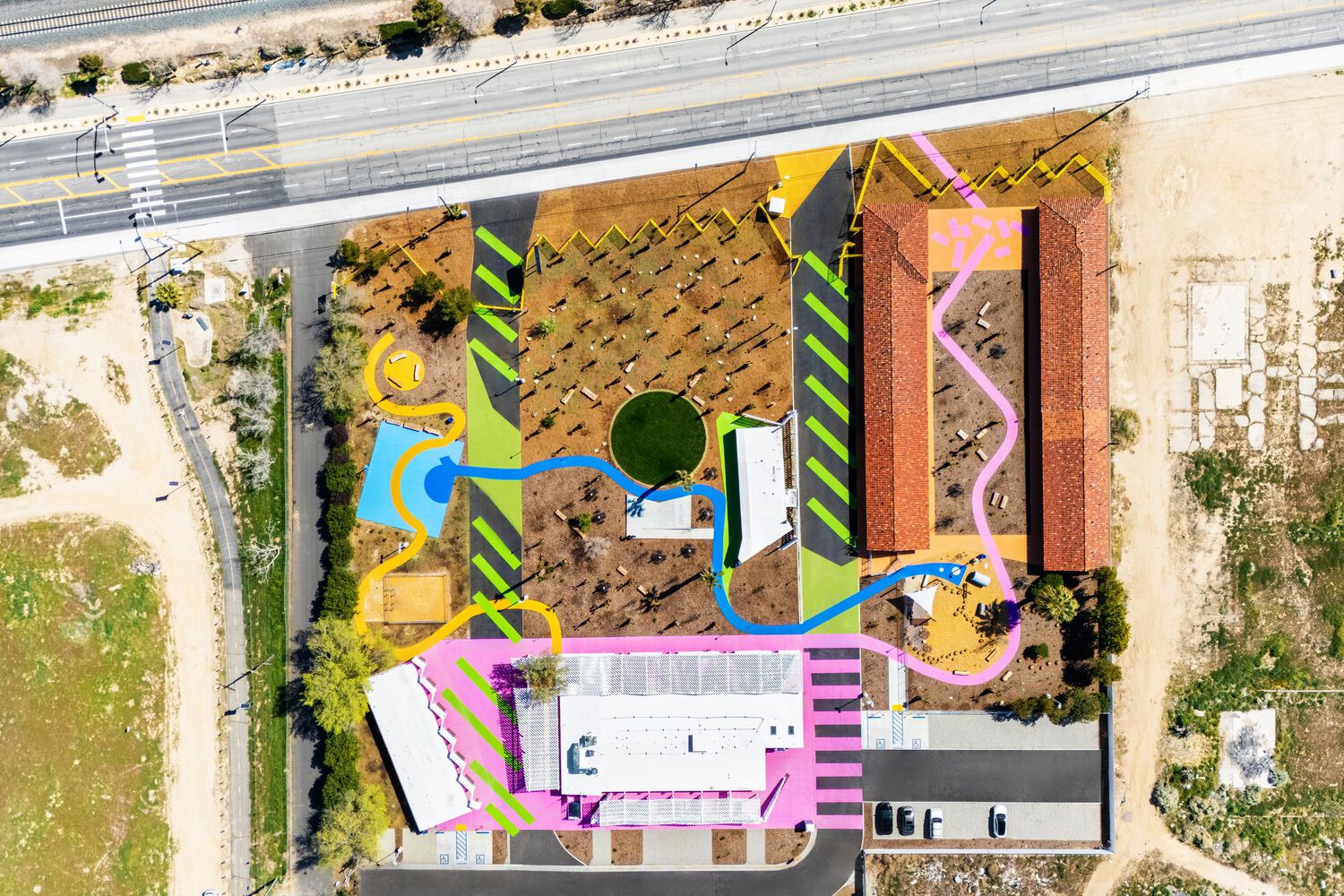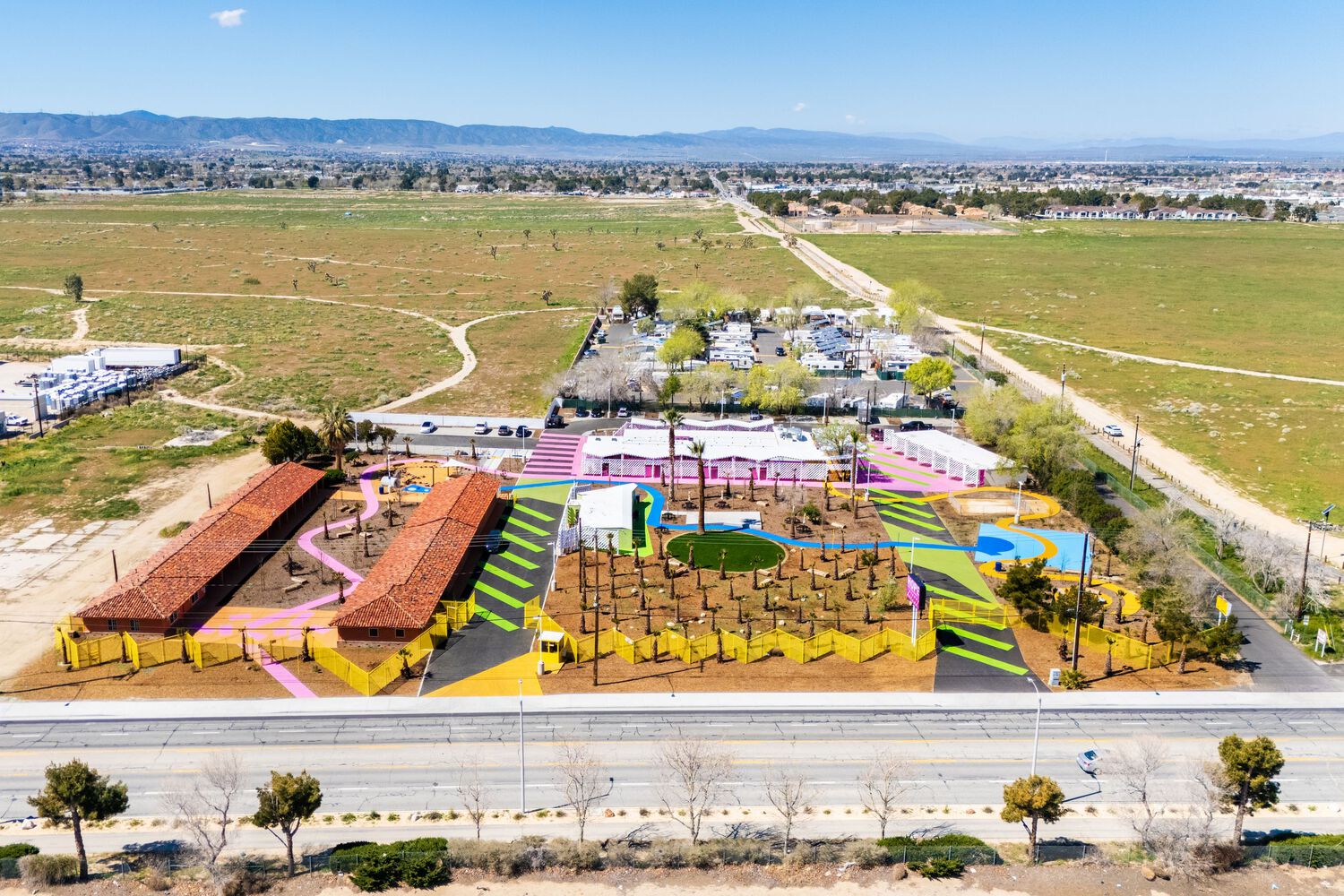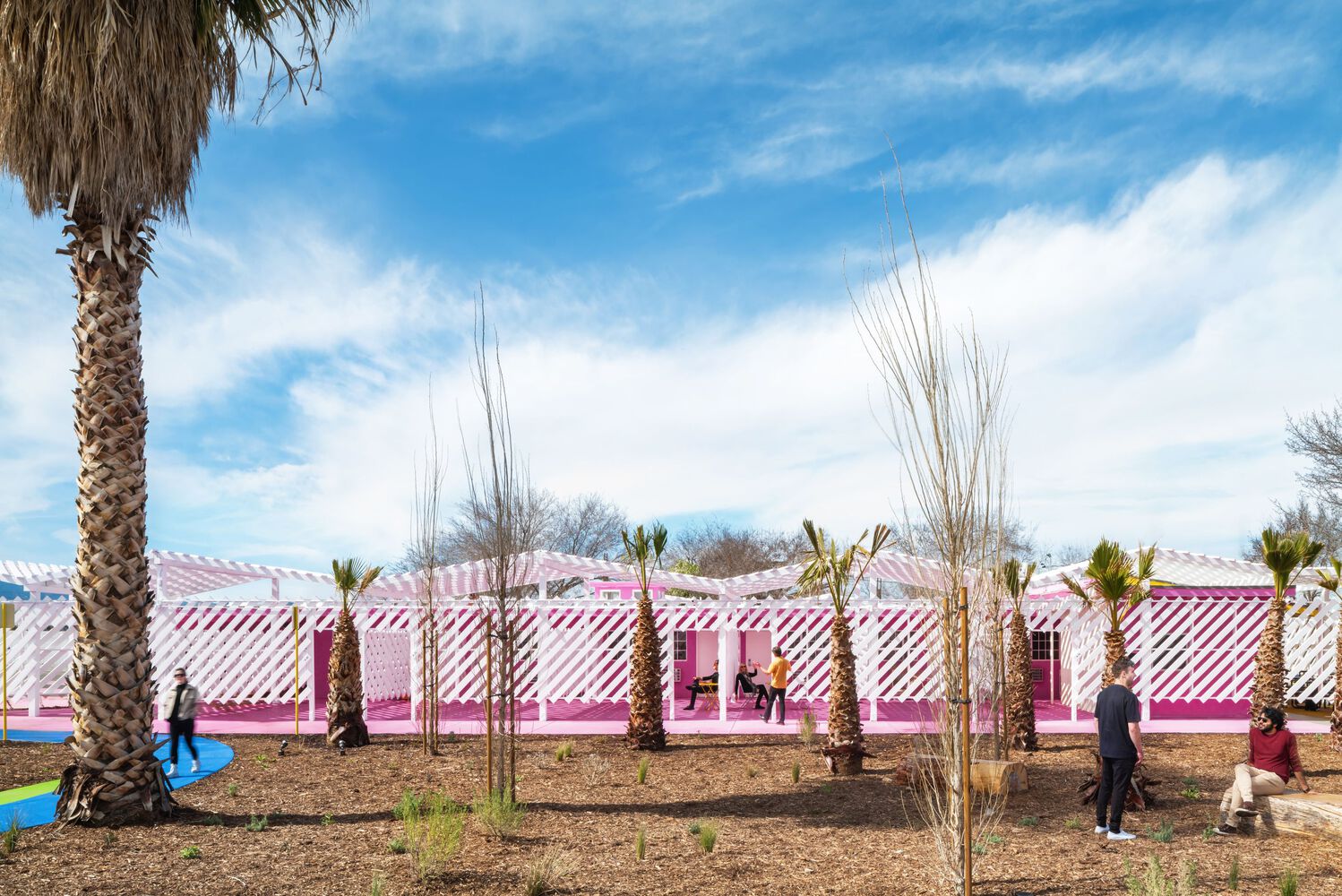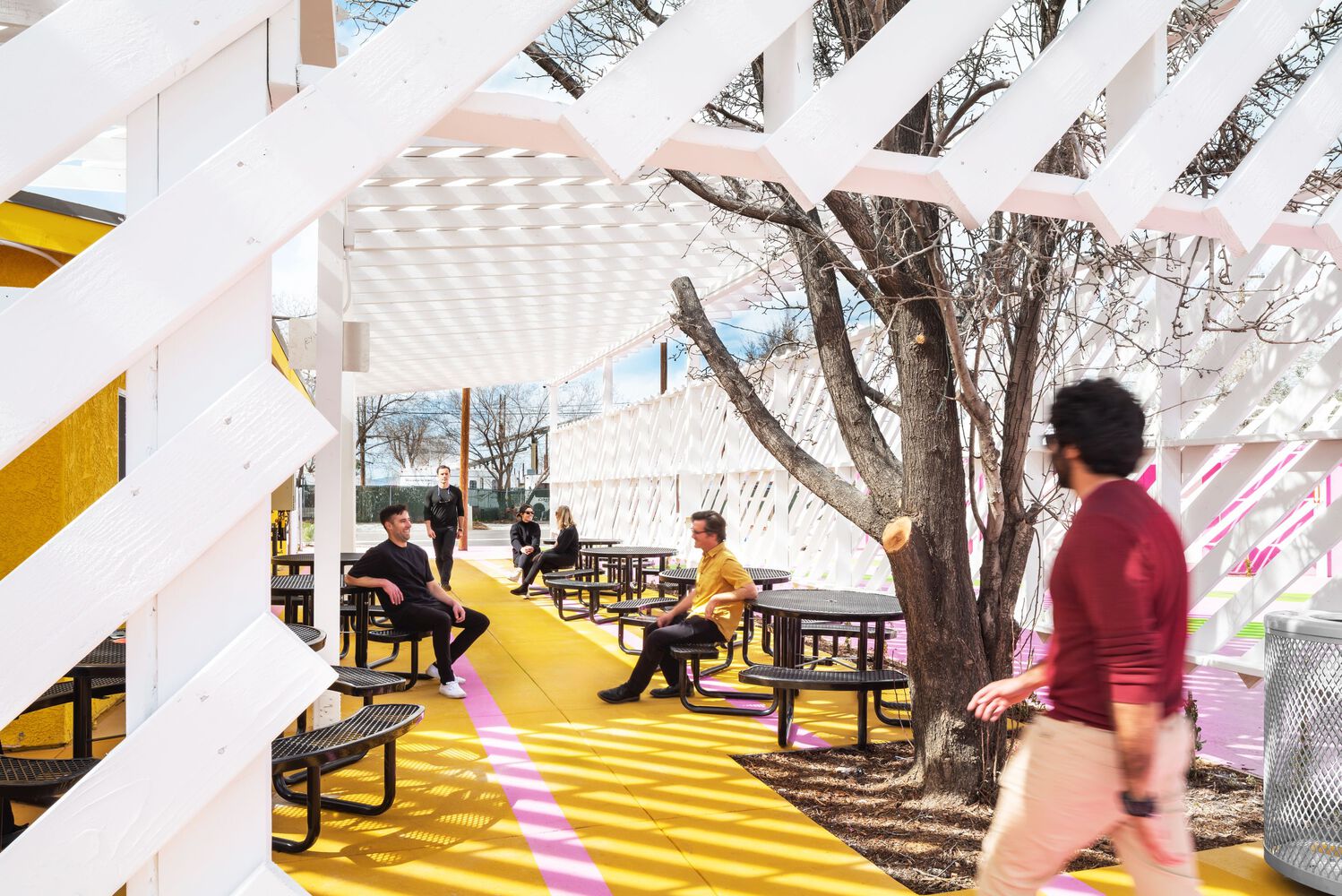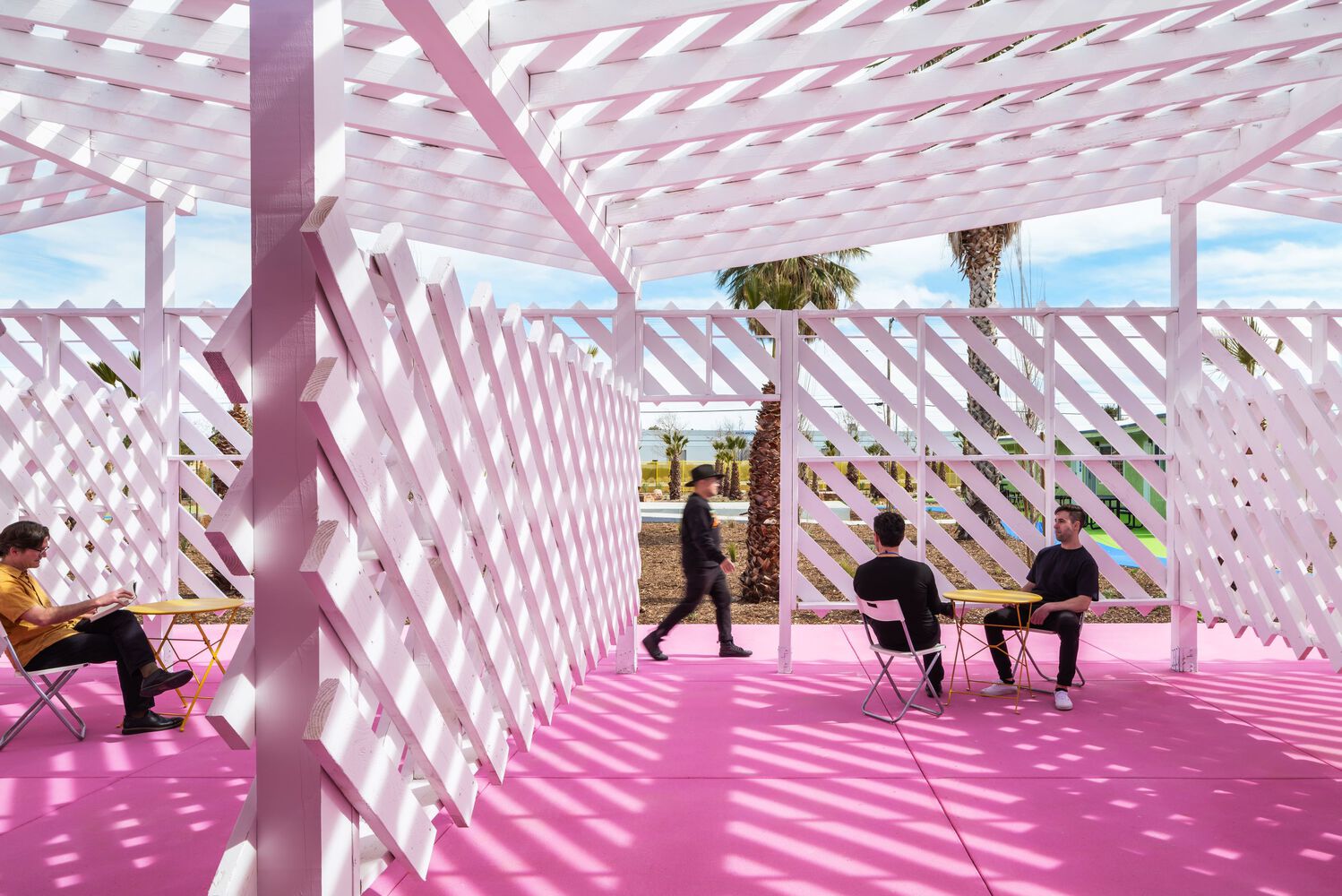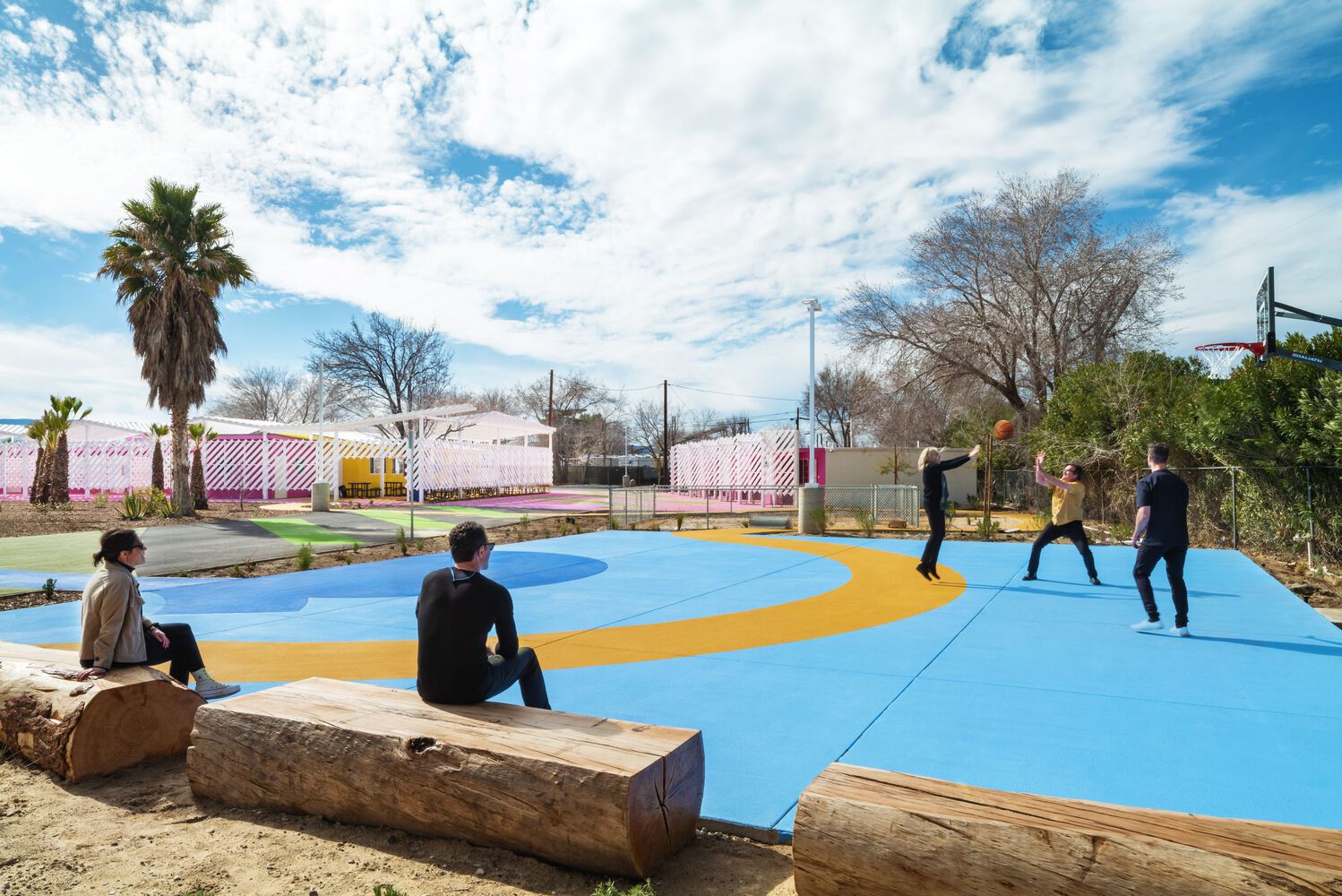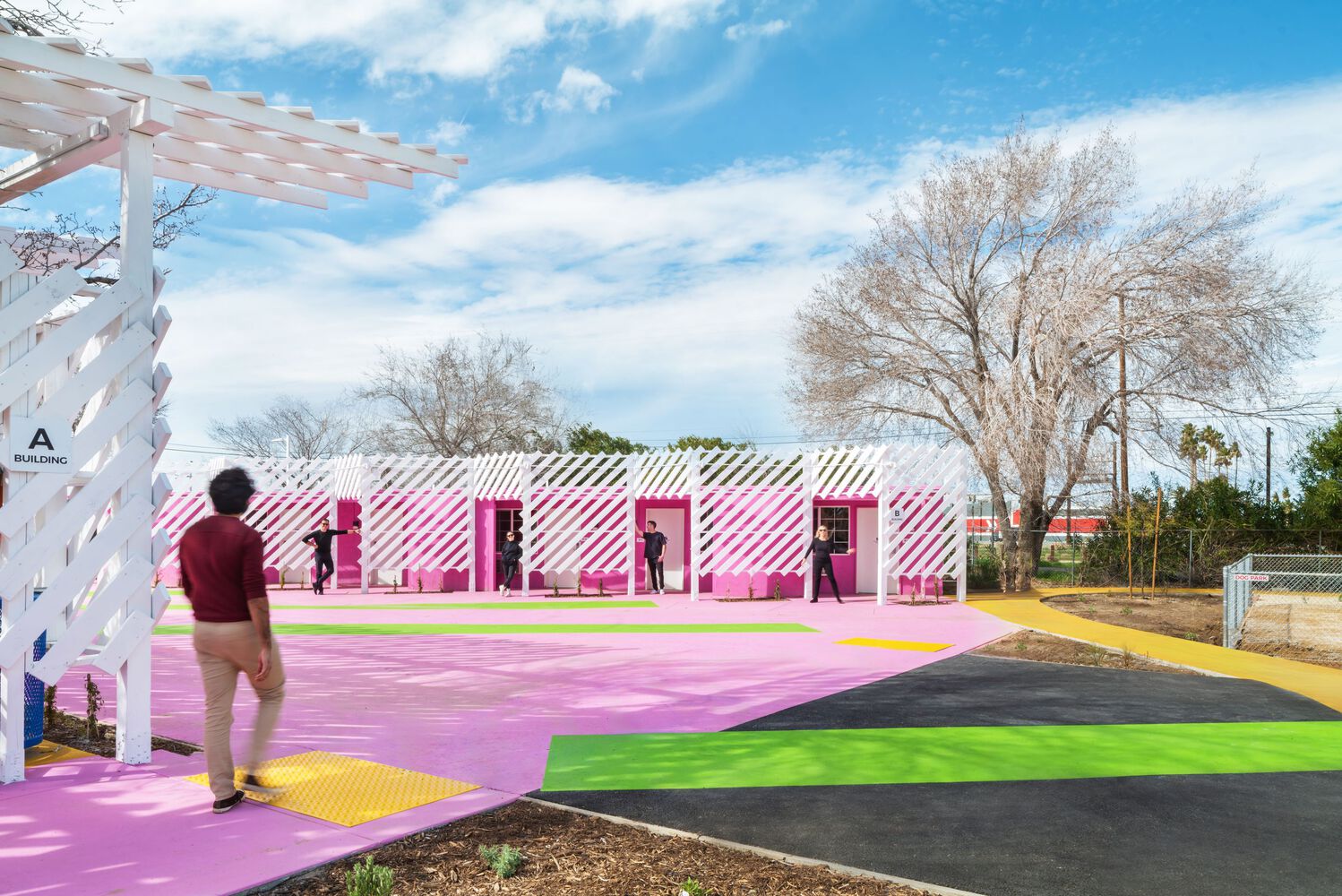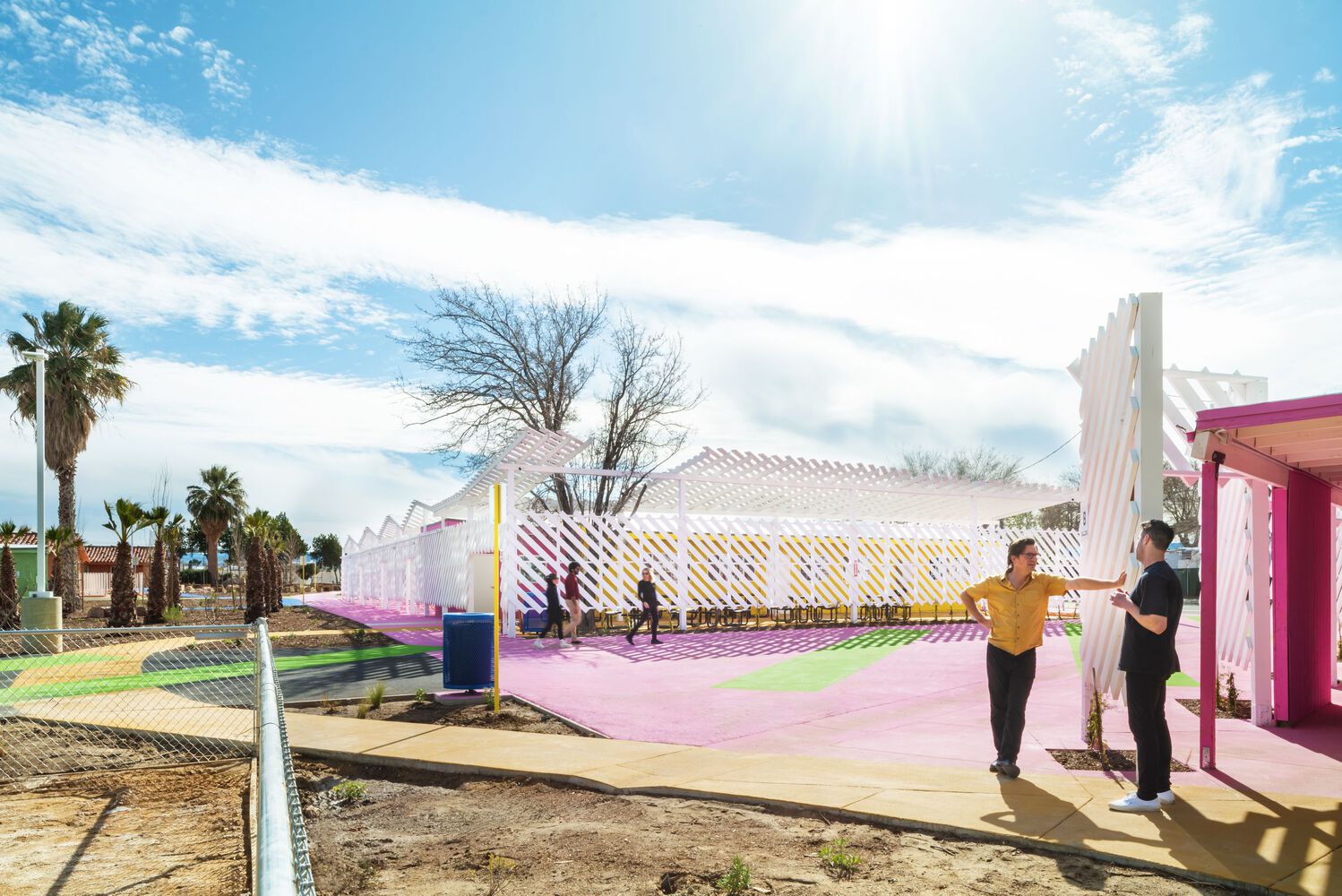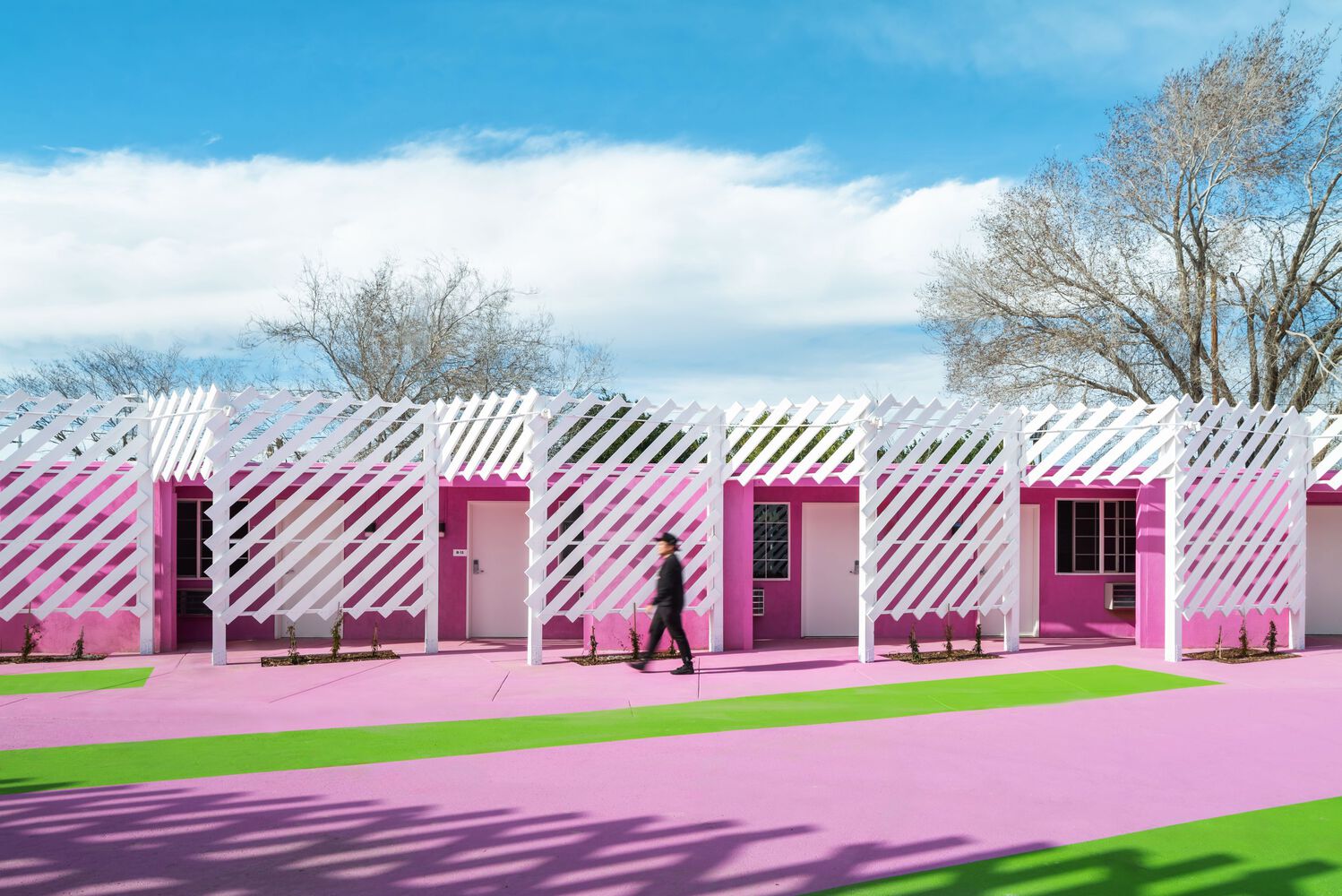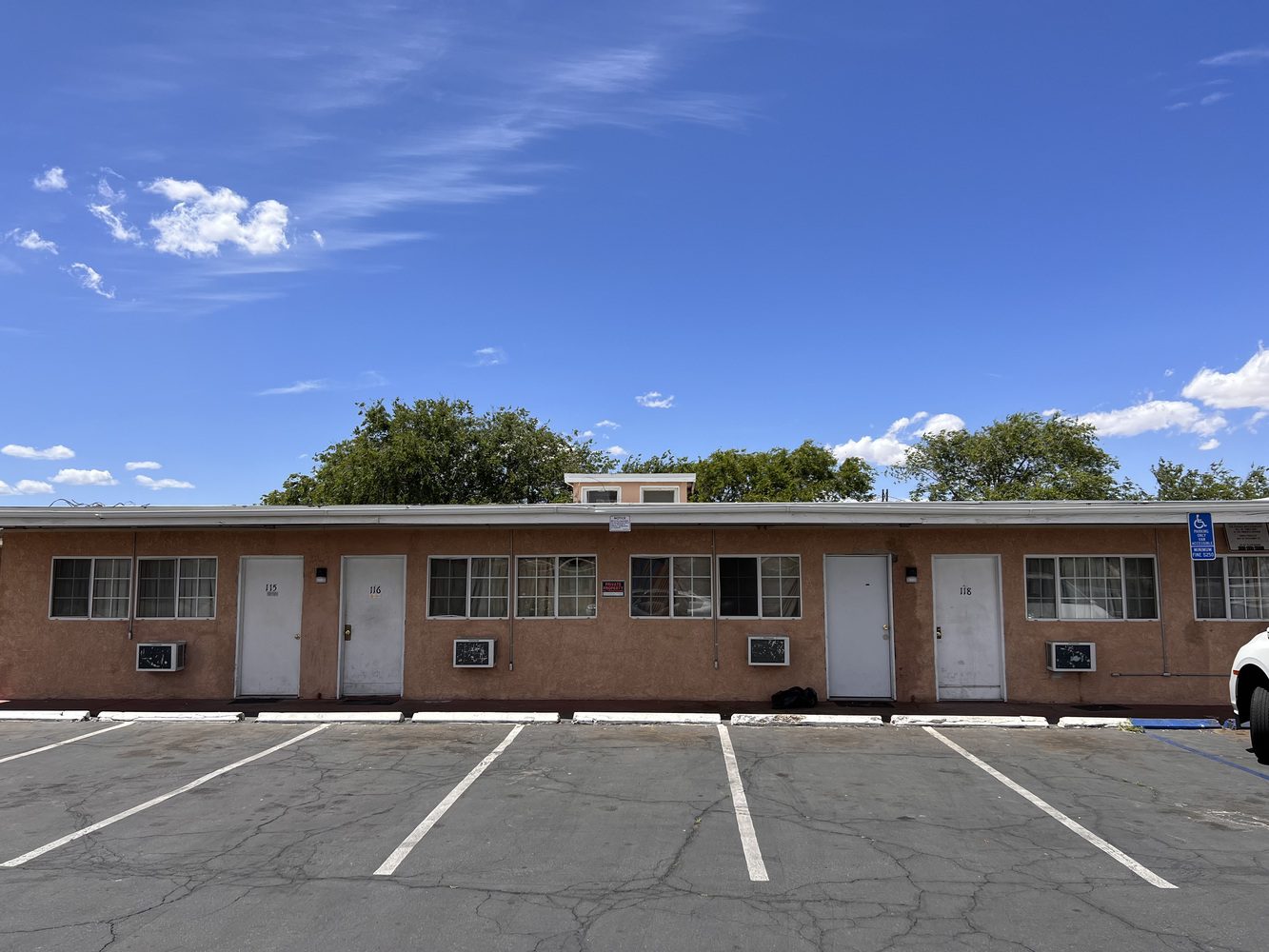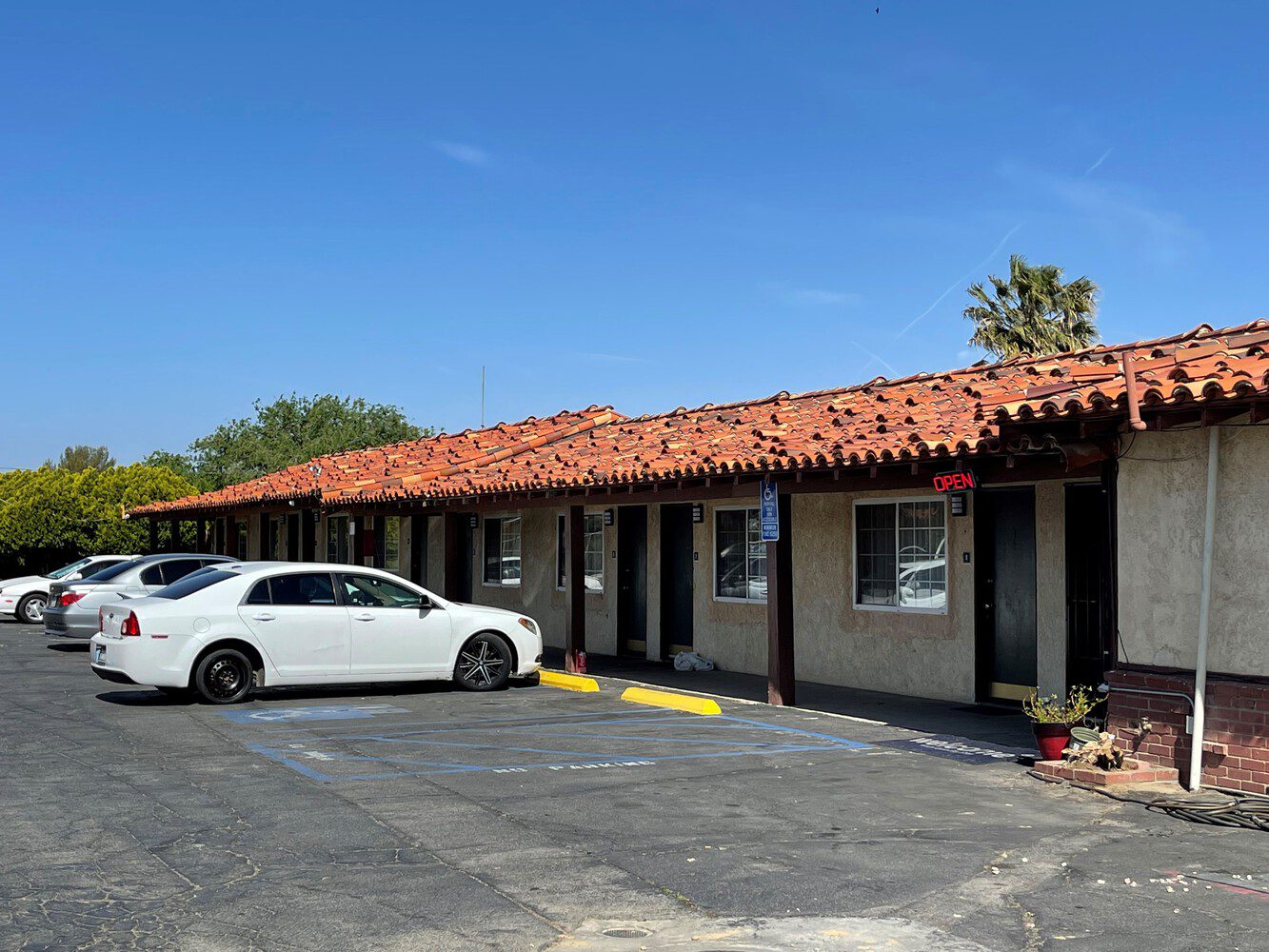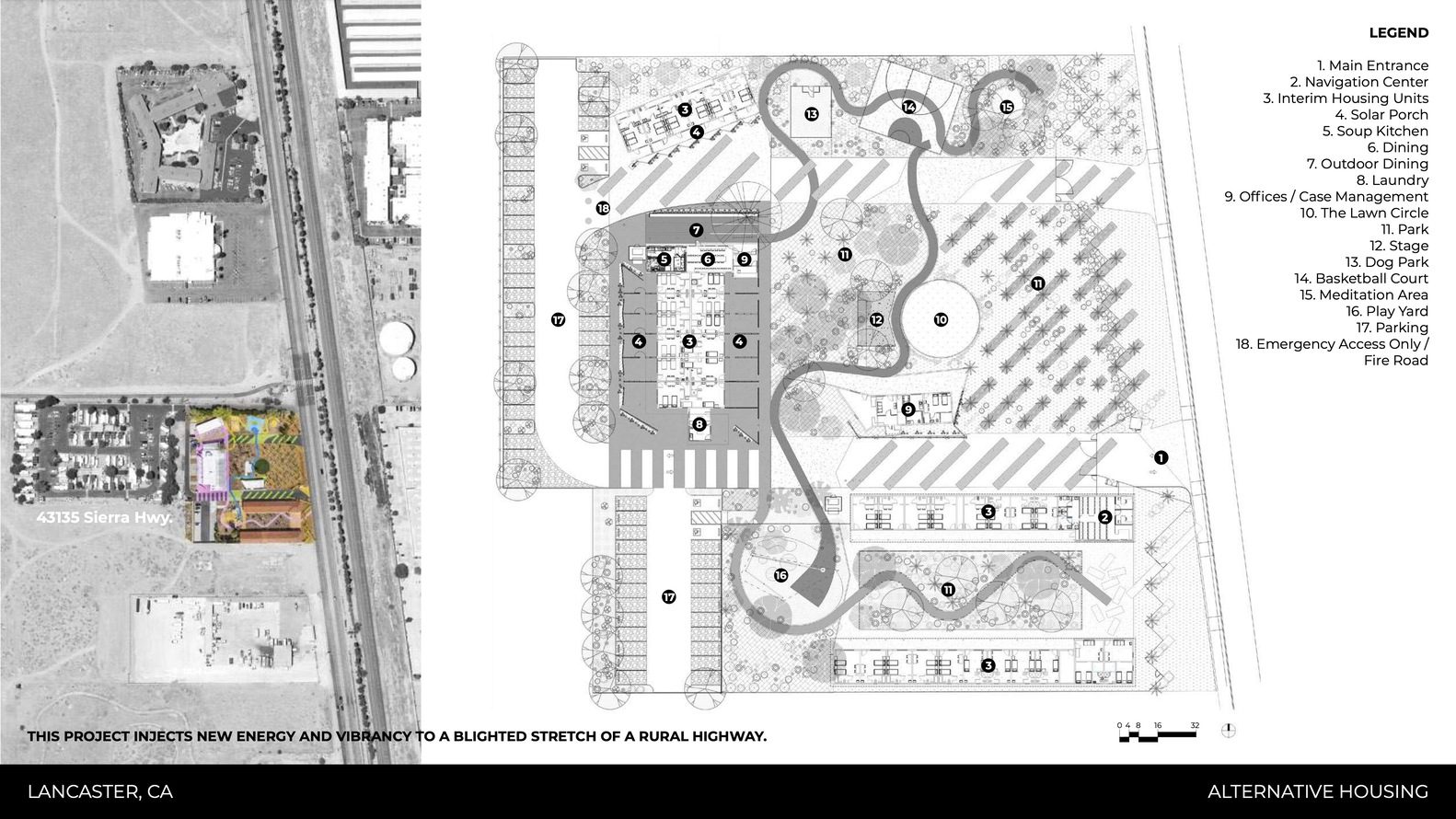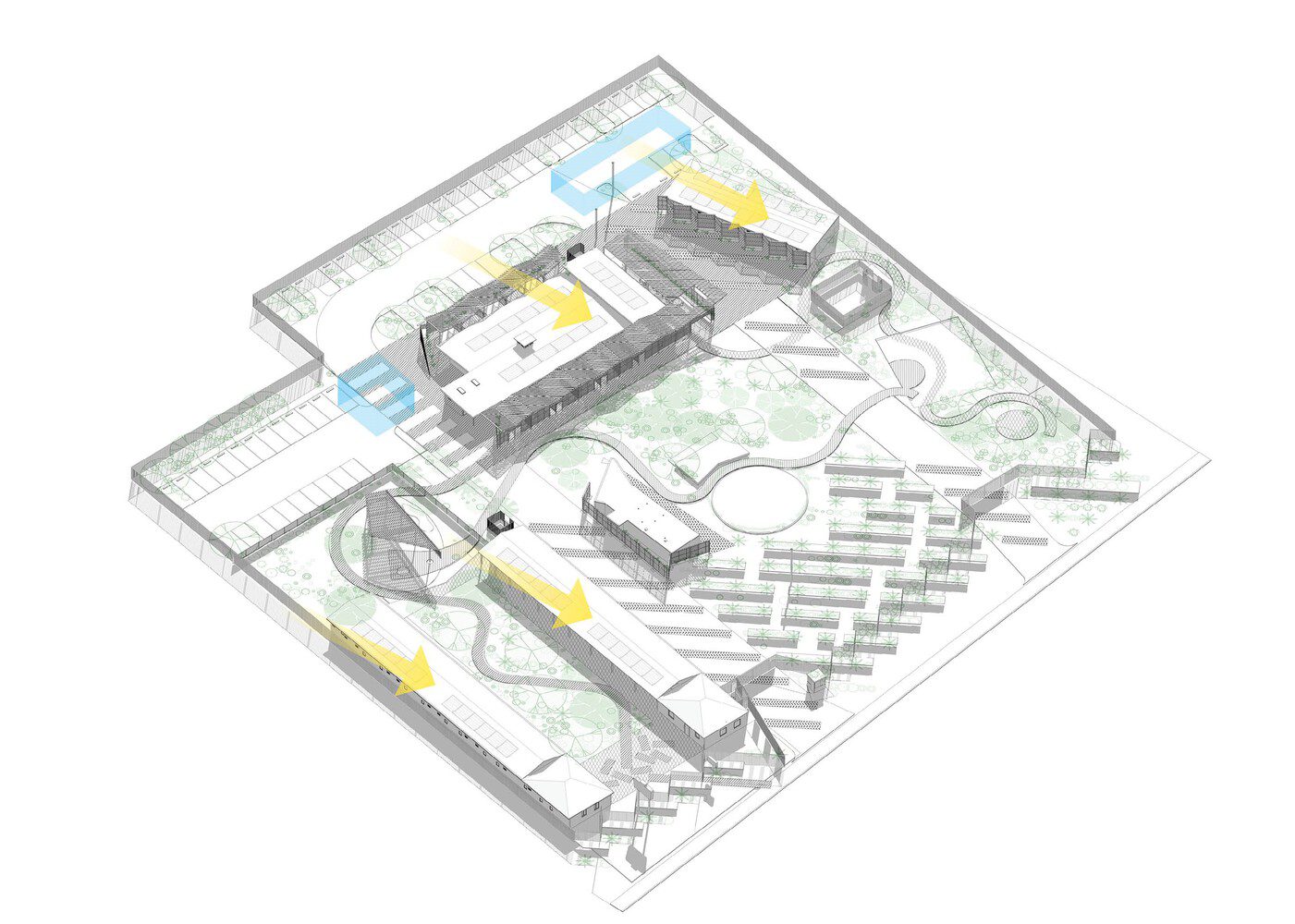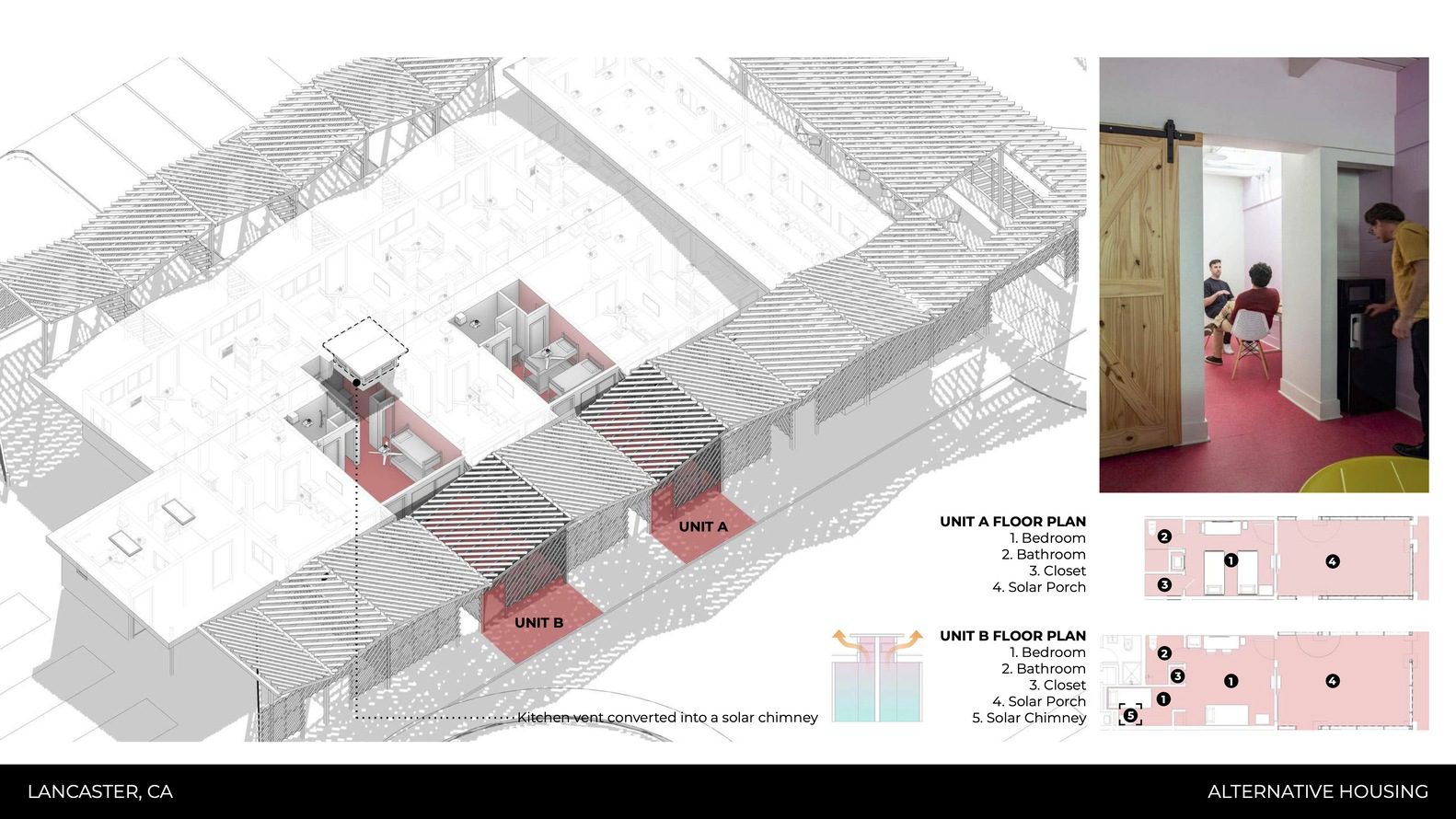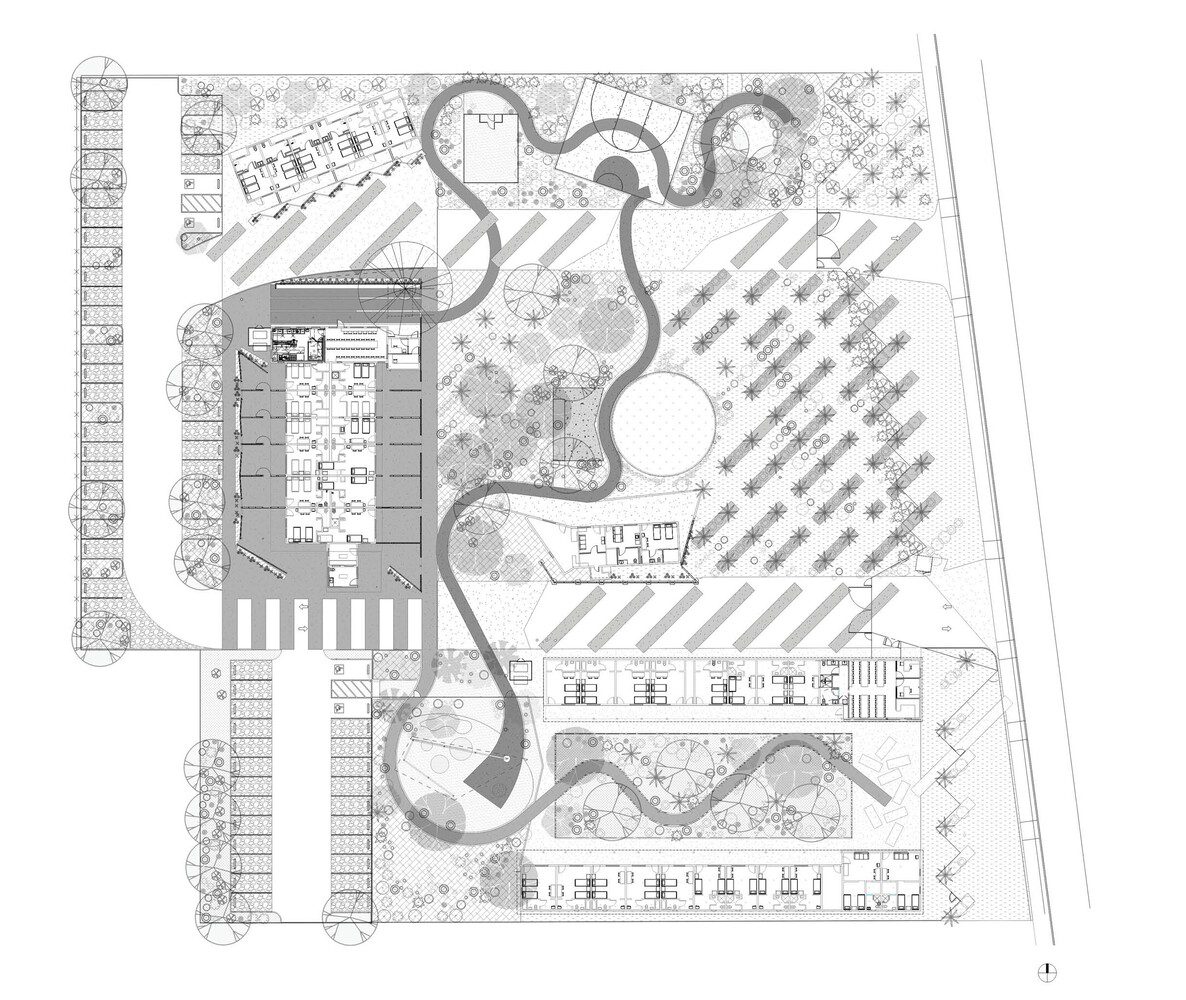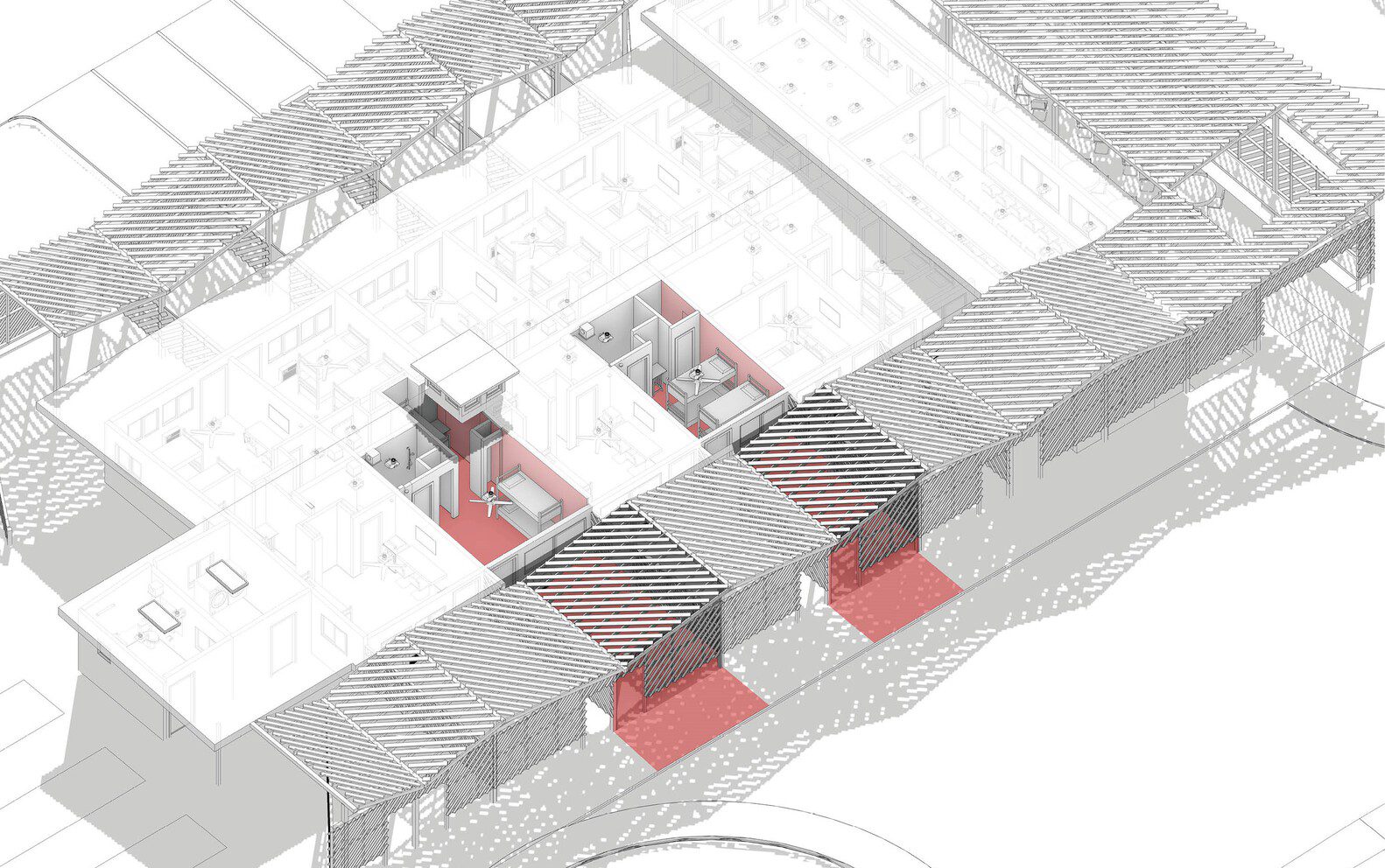In the high desert of Antelope Valley, CA (LA County), The Sierra introduces 38 new transitional housing units for families currently experiencing homelessness. Designed by award-winning emergency housing experts Kadre Architects, and built by Ford E.C., for their longtime partners at Hope the Mission (the largest rescue shelter organization in the country), the sprawling, colorful, 4-acre campus employs the firm’s signature modernist paint accents and graphic approach to create a contemporary, uplifting community for incoming residents. As a new housing prototype, the Sierra explores the rapid conversion of existing hotel stock into transitional housing in a rural setting. The entire Sierra campus comprises 38 self-contained units, a commercial kitchen (the residents receive 3 hot meals a day), a play area for children, a stage, a chicken coop, a basketball court and exercise area and several spaces throughout the property specifically designed for small and large social gatherings to help fortify a sense of belonging and community. On-site case management offices serve as a navigation center and the forthcoming pre-school construction will further provide residents with necessary support in re-entering the workforce and transitioning out of homelessness.
Located in the City of Lancaster, with views of the Sierra Pelona Mountains and a contemplative desert landscape, Kadre’s design alchemy and creative foresight for The Sierra project transformed a motel-style lot from a crime-ridden eyesore into a park-like campus. Situated off a stretch of highway that once housed the old Sands and Tropic motels, the 4-acre parcel in the desert is now a place of safety, dignity and revitalization. By eliminating all vestiges of the 2-star, formerly crime-plagued property, the campus also brings a visual upgrade to the neighborhood. Four new projects are planned that will collectively elevate this stretch of highway in the City of Lancaster.
A departure from previous urban and suburban sites the firm has designed for, the site and desert landscape posed distinct challenges and opportunities in exploring the expansion of living space, sustainability, and resilience. In the initial design stage, discovery revealed the site lacked a sewer system. Significant and costly infrastructure updates shifted project allocations substantially. The strategic use of low-cost, high-impact design techniques, including color and graphics, resulted in sustainable and aesthetically pleasing solutions for heat mitigation, cramped interiors and the need to create green space. These strategies were also effective in unifying, into a single campus, two architecturally distinct properties, a traditional clay tile roof building and a collection of non-descript roadside structures. To eliminate the claustrophobic impact of existing rooms, architects doubled the living space by adding a new solar porch to each unit, to line the facades of the existing buildings. The solar porch offers a reverie of light and shadow that plays out against the vibrantly colored walls throughout the day. The porches also present a new face to the campus and around the buildings in the wider landscape.
In collaboration with landscape architecture studio TerreMoto, the former parking lot was transformed into a park; vibrant, green outdoor space and room for a vegetable garden have replaced the asphalt. Shade trees located throughout the property will battle the desert heat, providing much-needed respite. The vast majority of the site remains permeable to replenish the aquifer during the infrequent rains. This includes the previously asphalted parking area, now moved to the back of the site and made permeable. The required asphalted fire road is covered with colorful, high-albedo paint. The new grounds feature meandering colorful walkways inspired by Brice Marden’s Propitious Garden paintings and intuitively connect the formerly disparate spaces into one cohesive landscape. This painterly approach extends to the ground plane, with color deployed strategically to tie the community together.
“The spirit of the place is so important to our psyches; we took it as our mission to not only provide housing but to instill dignity through vibrant colors, playful structures, meditative landscapes and pathways that meander throughout the site. We hope that the resulting recuperative feeling will serve future residents well in their journey out of homelessness”. The Sierra is the studio’s third Project Homekey conversion to date, joining The Alvarado in Los Angeles and The Woodlands in Woodland Hills. It opened to residents on 1st March 2024 and is located at 43145 Sierra Hwy, Lancaster, California and is operated by Hope the Mission.
Project Info:
-
Architects: Kadre Architects
- Country: Lancaster, United States
- Year: 2023
-
Photographs: Paul Vu, Kadre Architects
-
Civil Engineer: Hall and Associates, Barbara L. – Hall and Associates
-
Contractor: FORD E.C, Arash Daghighian, Sam Daghighian, Farid Hamedy, Manny Abarabar – FORD E.C.
-
MEP Engineering: Creative Engineering Group, Richard Ibrahim, Richard Ibrahim – Creative Engineering Group
-
Structural Engineer: Nous Engineering, Omar Garza – Nous Engineering
-
Landscape Architect: Terremoto, Kadre Architects, Kadre Architects (concepts) and Terremoto, David Godshall, Principal




